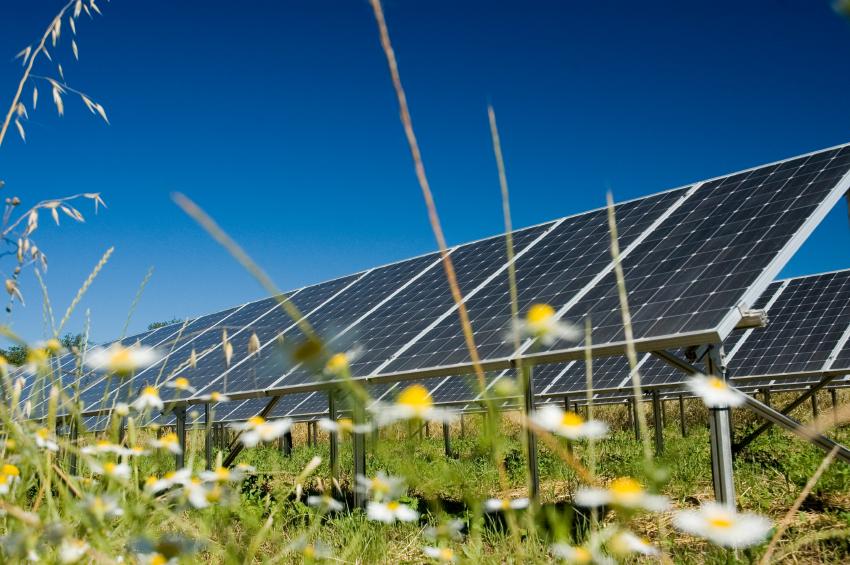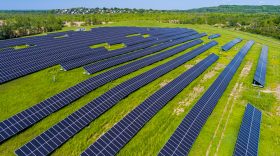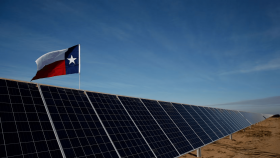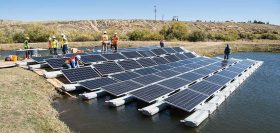Uneasy solar investors are gloomy after the presidential election, but the state of solar technology has never been brighter.
Sadly, renewable energy development has become highly politicized over the last 10 years. Despite the strong economic case for solar development in particular, renewable energy development is seen in political circles as a “Democrat’s issue.” Clearly, with the results of the 2016 election from statehouses to the Whitehouse, many fear that pro-renewable policies will be in the Republican crosshairs. However, many in the solar industry feel that solar deployment has already reached a tipping point, and attempts at punishing the industry for perceived ties with the Democratic party will only be minor setbacks on an the road to wider adoption. Investors, however, are not so optimistic.
Voicing solar investor’s concerns in an article entitled “Trump’s Presidency Already Has Solar, Utilities Stocks Reeling” TheStreet.com’s Tom Terrarosa reported that “…the bludgeoning of renewable energy players like First Solar and solar panel and panel component manufacturers SolarEdge Technologies (SEDG) (closed down more than 5%) and SunPower (SPWR) (finished more than 14% below its previous close), is to be expected as reduced fossil fuel regulations would hamper the ability of these companies to continue to grab up slices of market share in the U.S. power market.
Moreover, many of these companies have manufacturing facilities in foreign countries like Mexico and Malaysia, and Trump has been a critical proponent of punishing those companies who move facilities out of the country for tax breaks.”
Terrarosa is not out of line with his assessment, but the view from Wall Street is, as always, at once speculative and reactionary. Looking at solar in real-time, current conditions on the ground offer many reasons to be positive, even optimistic.
The Des Moines Register, the largest paper in a state that dominates in many areas of renewable energy production, ran an article by Donnelle Eller last week declaring that; “Like a Tesla flying down the highway, Iowa and the nation’s clean energy industry has too much momentum for President-elect Donald Trump and his fossil-fuel allies to derail it, say renewable energy advocates.” Later in the article it points to the large investments that the state’s utilities have made in wind and solar, and “…Possibly more important, tech giants Google, Facebook and Microsoft, all of which have large, energy-hungry data center operations in the state, have made it clear they invested in Iowa operations, in part, because of low-cost, clean energy supplies.”
So, what of Tesla? Elon Musk, whose entire fortune rests on the development of the clean energy economy, seems nonplussed. At a meeting of Tesla shareholders (who voted by an 85% majority to acquire SolarCity) he pointed to the ineffectiveness of ZEV (Zero Emissions Vehicle) credits in building the market for electric vehicles. He obviously doesn’t feel that elimination of programs like ZEV will really hurt Tesla, and Tesla shareholders are going big into solar at the same time that Wall St. appears shaken at the prospects of an anti-solar Trump administration. Why? Because they know that Tesla’s integrated approach to consumer-side energy production, storage and use is very likely going to be the game changer in the energy sector, regardless of subsidies. Storage is coming in 2017, with or without incentives. When consumers are given a choice, solar will finally be able to compete on a level playing field.
Ultimately, how badly could an anti-solar push in the federal government hurt solar? Would they attempt to cancel the Investment Tax Credits for solar mid-program? “For the most part most Republicans and Democrats, they may not have supported the extension, but they also don’t like changing the rules midstream on businesses,” Christopher Mansour, vice president of federal affairs for Solar Energy Industries Association (SEIA), told PV Magazine. “They set this policy in place, and businesses are making investment decisions based on five-year extensions of the (solar tax credits), and I think most Republicans and most members of Congress in general are loathe to change the rules on companies as they are making these decisions.”
Though investors may be joining climate change activists in panicking over what may happen in the coming four years, indications are that the solar industry is not going away anytime soon.





